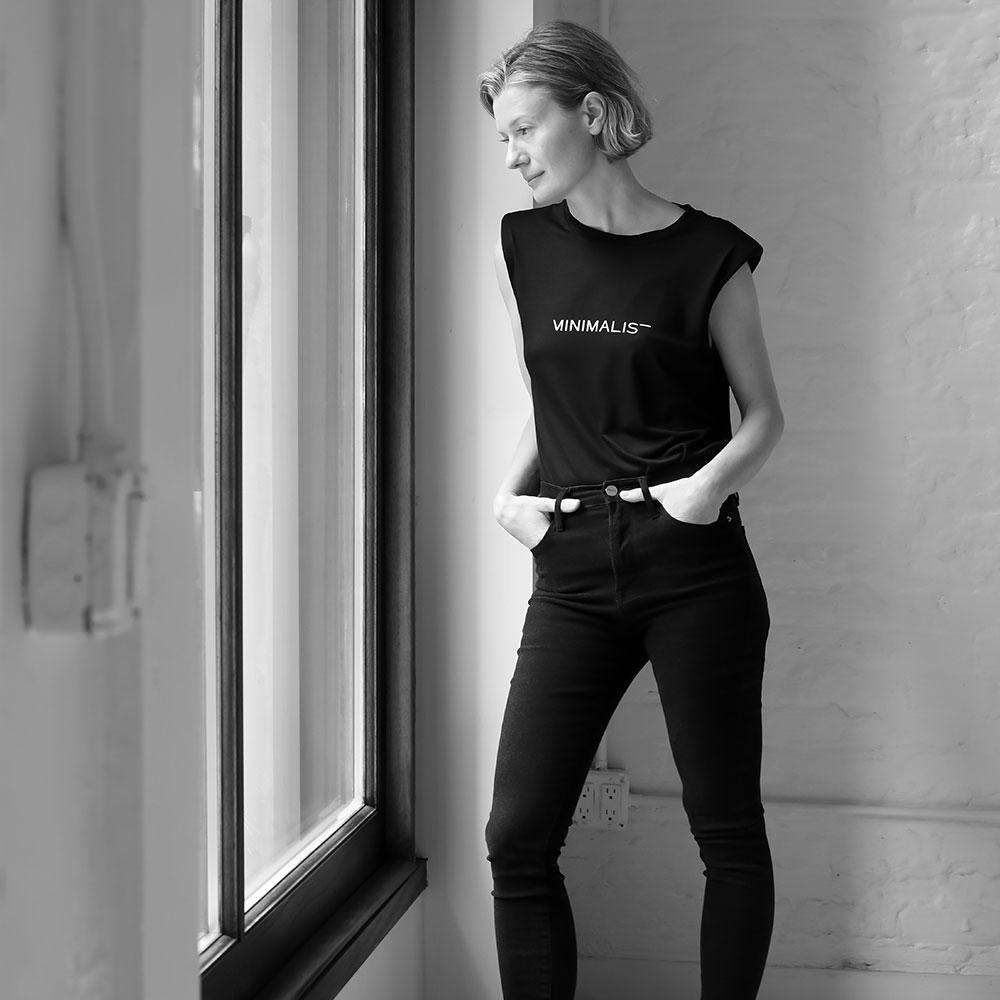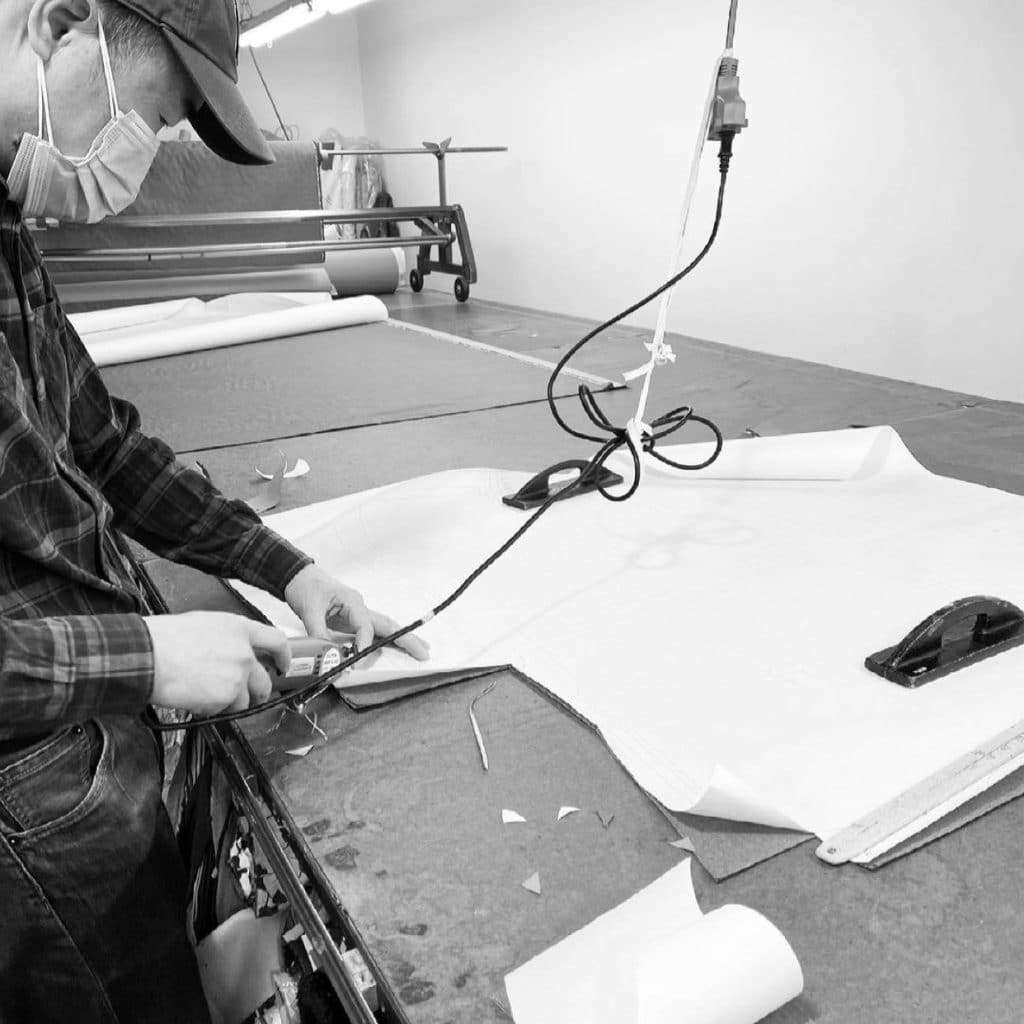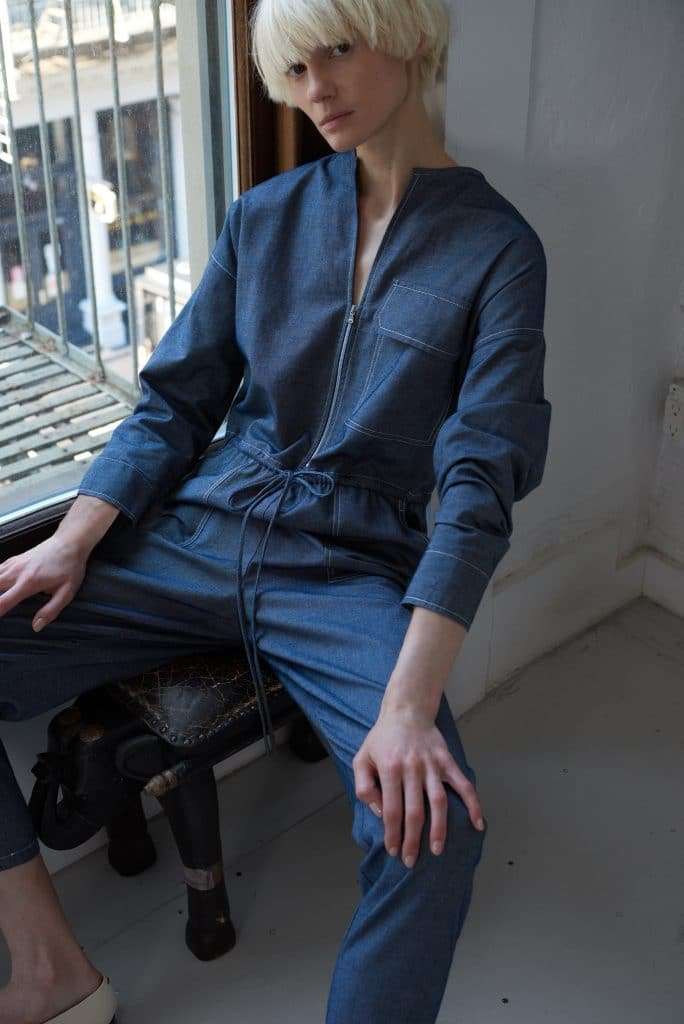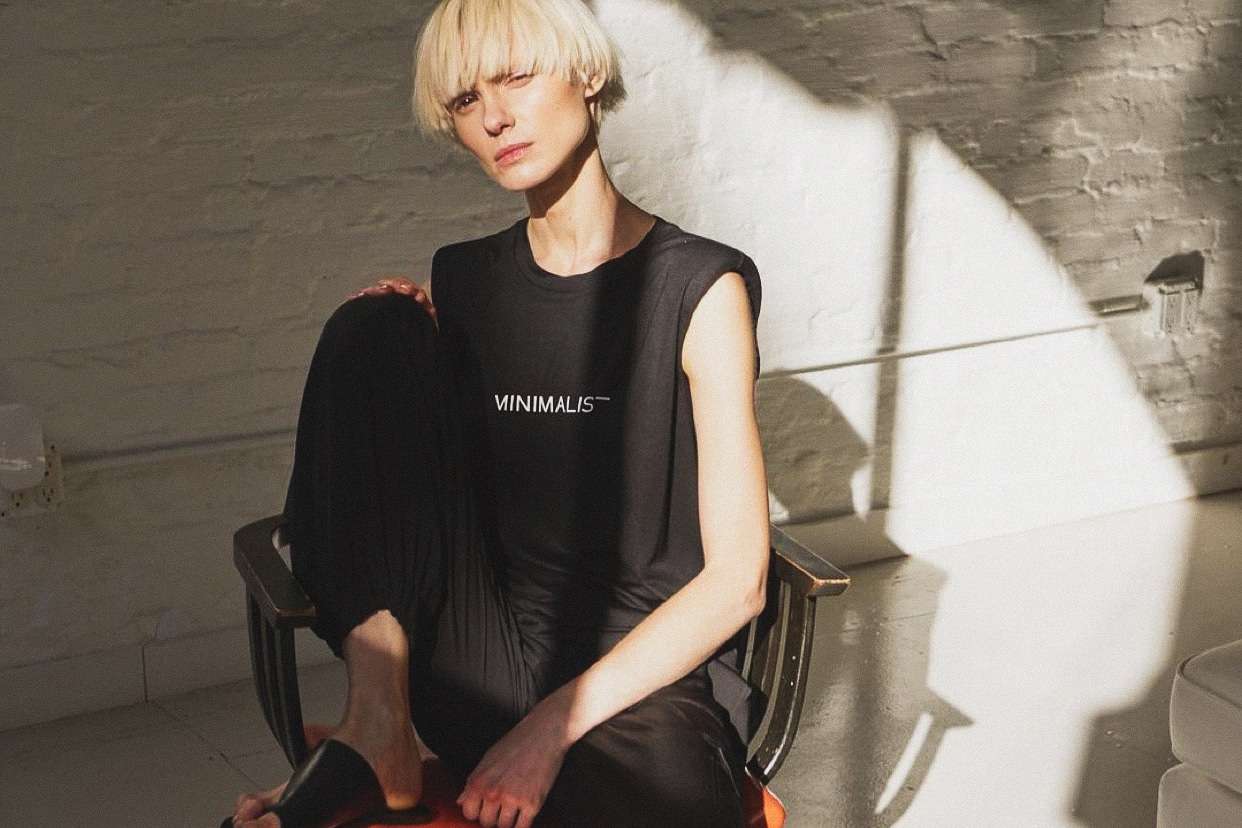The fashion industry needs all the help it can get—both in becoming more sustainable and breaking the ‘more is more’ overconsumption habits. Meet Minimalist: it’s out to do both.
Tamara Davydova, founder and chief creative officer behind the sustainable New York-based clothing label Minimalist, always wanted to step out on her own. The Parsons School of Design graduate spent more than 20 years in the fashion industry, designing for names like Michael Kors and Monique Lhuillier. She had the experience, the skills, and certainly the love for fashion. But she knew the world didn’t need another take-make-waste production model.
So Davydova set out to build a brand that ticked all the boxes that had become important to her over the years. She wanted something more curated, chic, and timeless—a focus on impeccable design, fit, high-quality materials, and workmanship. With a minimalist ethos, she would keep the number of components in each garment as low as possible. “Only what’s absolutely necessary,” she tells Ethos. The dream came to fruition earlier this year with the ten-piece luxury collection that launched Minimalist in February.
Fast fashion
The problems with fast fashion are far and wide. Production relies heavily on cheap materials—often including byproducts of petroleum, heavily sprayed cotton, or animal-based textiles. The fashion industry is a leading producer of wastewater and emissions–issues sustainably-minded designers like Stella McCartney continue to speak out against. And then there are labor issues. While a growing number of labels have taken measured steps to root out suppliers connected to unsafe and unfair labor conditions, trafficking and other human rights violations persist.

Part of the reason fast fashion is so difficult to replace is because of the poor quality; people have to replace deteriorating clothes more frequently and they perceive the cheaper price at retail as a savings—even if cumulatively, that’s not the case. It’s an ouroboros cycle that keeps consumers tethered to trends rather than classics.
Davydova says high-quality garments should last for years, “at least ten or more.” She says innovative materials along with single-fibers ensure the highest quality for a timeless capsule wardrobe.
Sustainable materials
“I choose certified, sustainable materials at the outset so I know that each garment is fully recyclable. I also design and fabricate for maximum product life. With timeless styles and high-quality materials, the need for recycling is very far in the future,” she says. And that goes for trim as well, says Davydova.
“We hold the same standards for our trim as we do for our core materials. Elastic is sourced from Austria and crafted from organic cotton and natural, biodegradable, and recyclable rubber. Italian-made OEKO-TEX® certified zipper finishes are free of harmful chemicals. We use Chargeurs Sustainable 360 line shoulder pads and interlinings, which are made from GRS-certified post-consumer materials, which are recycled instead of heading into landfills. Even our garment bags are either compostable or water-soluble and marine-safe,” she says.

The brand is also designing for circularity, Davydova says. “That means that we eliminate waste and pollution from the start by choosing only certified sustainable materials. We then design our garments to be fully fiber-to-fiber recyclable, to eliminate textile waste in landfills,” she says.
“Once our customers are ready to return the garment, they will send it back to us. We will be working with a recycling partner who will recycle the garments back into the original fiber to create new clothes again,” Davydova says. The brand is also working with Fabscrap in New York City to recycle fabric swatches, leftover sample yardage, and prototypes.
Minimalist style
The focus for the brand, Davydova says, is on simplifying a woman’s life and “reducing stress from clutter and decision-making fatigue.” She points to items like her convertible blazer made from organic cotton and thread from plastic bottles. The blazer features hidden zippers at the waistline, allowing the jacket to be worn cropped or full length.

“Everything is curated, seasonless and versatile,” Davydova says. “I want my garments to instill a feeling of calm, simplicity, and confidence. I also want women to feel they’ve invested in something consciously designed with sustainable ingredients.”
Shop the collection here.


